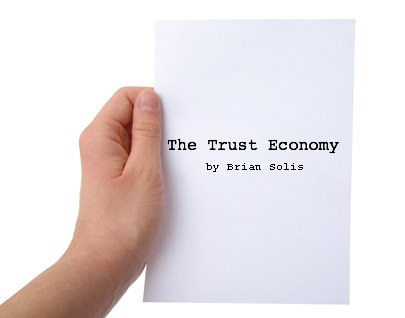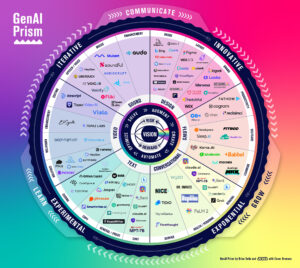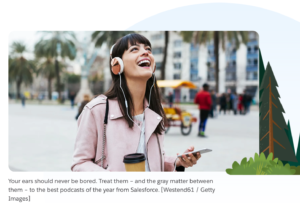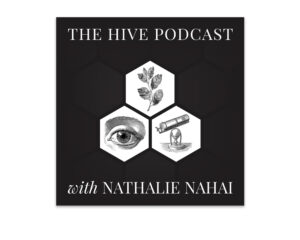
Source: Shutterstock (edited)
Social Media is rooted in relationships, the dynamic interaction and collaboration between real people. We learned and continue to learn how to communicate in public forums, evolving our personal views on privacy and uncertainty as we transform from digital introverts to social extroverts.
This is our industrial revolution and its reward for participation is relevance. The socialization of online societies democratized the publishing industry and equalized influence.
The Social Economy
Socialnomics is the study of what I refer to as the social economy. The truth is however, that the true method for studying the exchange, growth, depreciation, and path of social capital is a more human form of social sciences, those that embrace the methodologies and tenets of psychology, anthropology, and sociology.
As the social economy swells and continues to flourish, many of us are abandoning the forums and systems where businesses held the illusion of control in favor of communities where we dictate the level of value we give and take. Accordingly, brands are turning in our direction. We are, after all, the keepers of social capital and with it, we make valuable decisions and also impact and influence the decisions of others. We’re now joining and creating our own communities online where we create, shape, and steer attention democracies.
Individually, we’re realizing the power and potential of social media. Collectively, we’re changing how we learn, interact, discover, and share.
The rise of Social Media resembled a global celebration of freedom and empowerment. In many ways, this was a Summer of Love and Twitter was our Woodstock. Every genre creates a movement. The 80’s championed the free market economy. The 90’s gave birth to the Internet revolution. The 2000’s engendered a more social Web. We carry the spirit forward as we seek incremental milestones that deliver meaning and rewards, evolution is perpetually imminent.
What’s next?
In order for a value cycle to maintain relevance and usefulness, it must perennially pull innovation and insight from the edge and bring it to the center. The time to close the chapter on our Summer of Love nears, but we will forever hold it sacred. The edge is already coming into focus.
The Attention Economy
Attention is indeed a precious commodity. Perhaps more scarce than we may realize or care to admit. It is why we are migrating towards the employment of attention dashboards to help funnel the content we attempt to follow. Essentially, attention dashboards are any one of the three screens (mobile device, PC, TV) within the Golden Triangle (mobile, social, real-time) and is usually experienced as an activity stream, TweetDeck, the Facebook Newsfeed, FriendFeed, any feed reader, etc. The attention dashboard is where we focus and it is how we keep our finger on the pulse of the social web – the conversations and connections that ultimately represent the human algorithm.
To have any hope of connecting with discerning consumers in the social web, we have to gain visibility and momentum across individual attention dashboards, where, when, and how they’re tuned.
To do so, the marketing infrastructure and methodology must shift from a broadcast framework to one of informed engagement and interaction without compromise or skepticism – all the while placing functional and meaningful forms of metrics and analysis. Identifying, understanding, and compelling new influencers requires an ongoing investment in listening, analysis, and cooperation.
It is this practice that lays a promising foundation for implementing a social CRM (sCRM) or Social Relationship Management (SRM) infrastructure supported by established workflow, processes, and governance.
Attention, however, is only thinning. To help, the social Web is on the verge of realizing the potential and corresponding benefits of real-time filtering technology. Gaining presence on attention dashboards will test the creativity, perseverance, and quality of those who choose to willingly participate.
As we traverse the dynamic landscapes defining the social and attention economies, we realize that something much more powerful is required to earn ongoing attention in the social web. One of the primary principles and virtues of earning attention over time is to establish connections and interactions rooted in trust or the constant acts of earning it.
Individualized engagement that attempts to deliver value contributes to the kindling of trust.
The New Trust Economy

I am me, but I already know that. Who are you, why should I care, and who am I (to you)?
Social Media is ours and it’s up to us to determine who we let into our social graph. We are the gatekeepers for our attention and in order to earn our awareness, you’re going to need to know a bit more about me than my age group, gender, level of education, marital status, and household income. More importantly, you’re going to have to dig a bit deeper than the keywords I may use in online conversations.
It’s the difference between demographics and psychographics. It’s the difference between listening and monitoring.
The social economy now gives way to something much more substantial. The next stage in the evolution of new media is the trust economy. Whereas conversations served as the currency of social media, conviction credence, and value serve as the market for trust economics.
While brands weigh the scalability and ROI of investing in relationships, as a consumer, I can assure you, a reasonable attempt at fostering relations is a noble and respectable endeavor.
We’re no longer limiting relationships to friends, family and associates. As our comfort and interaction increase in social networks, the relationships we forge within each reflect our interests and aspirations.
The curated micro networks we forge within each respective social network serves as a trusted community. Those who can participate or permeate these trust communities must first earn the prominence of what Chris Brogan and Julien Smith call Trust Agents – those individuals who are deserving of your time and attention as demonstrated through their actions and words.
It is these concentrated communities that ultimately form the premise for a much larger and more meaningful human network – a collection of trust networks that represent the market and exchanges for your focus, investment, participation and ultimately your actions.
With time, our contribution to the state of the social, attention, and trust economies is measured by reciprocity, recognition, value, and benefaction.
Trust is earned and its stature is representative of our collaboration and contribution over time. If the Social Web is an ocean, trust funnels into distinctive and distinguishable rivers.
Connect with Brian Solis on:
Twitter, LinkedIn, Tumblr, Plaxo, Posterous, or Facebook
—
Click the image below to buy the book/poster:
pr pr+2.0 pr2.0 public+relations marketing advertising interactive social+media socialmedia brian+solis social media media2.0 media+2.0 2.0 smo social+media+optimization marcom communication publicity advertising expert interactive spin brand branding guru social+architect








Thank you for your excellent post Brian. When I first read Trust Agents I was thrilled to see how Chris Brogan and Justin Levy encapsulated what is and has always been the true economy-trust. Being authentic and having the social skills necessary to listen and communicate with customers and employees hasn't changed but the medium has. Focus will narrow to those who deserve our attention.
Well said Kathy.
Great post! Very thought provoking. You've hit the nail on the head once again, especially with the idea of the attention dashboard. I think people are tired of feeling fractured, having to go from place to place (across the social media sphere) to check in. It seems with greater frequency people are creating their own hubs where information comes to them and they're becoming more selective about what they choose to let in. People are busy and they want relevant, useful information from “Trust Agents.” Like you said it represents the human algorithm.
Hi Brian, Thanks for sharing the insight.
Again trust would be a crucial part of the social future for example a trustworthy product or service does well, gets talked about because customer has the trust to put himself with a product review on the line in front of his peers and I think this can be applied to every thing from customer service to sales.
Then their are people like you who have earned the trust by consistently sharing stuff which is not only worth the learning time but also the discussing time with there community members.
Brian, awesome! I think there are two other factors that may have an effect as well.
First, is our current mode. My psychograpic profile is different when I'm driving home than when I'm at my desk. A great example is the value I would ascribe to a traffic report while I'm driving as opposed when I'm safely tucked away in my office. While the trust I assign to the traffic reporting source may not change during the day, its value certainly does.
A slightly larger scale illustration. I may not be in the mood to get Christmas related messages until after Dec 1st while others are blissfully happy to get them as early as possible. In some way, my personal filtering mechanism must be able to take that into account since advertisers, rightfully so, want to begin ads as soon as possible. In this case doesn't this shift the burden for the advertiser from one of earning our awareness to one of earning relevance in my current mood? Wow… that's getting pretty deep.
The second trend that needs to be considered is what I see as a move away from the personal computer as our information station to a network of application specific appliances. We use game consoles for entertainment, smartphones for info on the go, etc, and they're all connected through the growing ubiquity of the internet as a data source. This application specific appliance can actually help with the mode questions above but will still require some assumptions on the part of those seeking our attention. Does anyone think this is having an impact on our view of communities and the web economy?
Thanks again for an awesome post! I love this topic!
@jtrigsby
Nice photy scheme and choice
Thank you Brian for a well written post. The sentence that resonated with me the most is “it's the difference between demographics and psychographics.” To truly connect with another, you must take the time to know how they think and feel about a particular subject matter and oftentimes on numerous subject matters.
Technology/Social Media is very interesting. It can foster a disconnect between individuals or it can build trust and a sense of community.
The only words I can think off to describe your blog is,
TOP QUALITY
The information I have learnt on here already is much greater than what I have learnt before now.
Mark McCulloch
I like your emphasis on collaboration. I would like to see more discussion here. I see a lot of thought leaders in this space focusing on trust and the building of it between you and your customers. The other place that I think is on the horizon of opportunity is around partner collaboration. For example, I am working on opening what I call an “innovation and collaboration” center in Chicago. After twenty years of working with a lot of leaders in the city it is great to be introduced from one “collaborative” leader to another. What is forming now is a different experience than what has occurred in the past. Now, we talk, up front, about how we will collaborate and how we want to be inclusive and that we are open to diverse leaders and diverse opinions in “co-creating” something bigger than any one of us could create.
It's great to have other leaders in the social media space talking, exploring and building something better for all of us.
Great set of thoughts here, thanks for sharing….
Reading these well-articulated thoughts about the evolution of business and it's relationship with consumers, as an educational administrator, I am struck by how critical these same ideas are to the ways in which we deliver education to our students…ie, our consumers. I wish this could become required reading for all educators who are responsible for developing delivery methods to our students – of every age and level.
This quote from the end of your post should also be applied to education.
” Trust is earned and its stature is representative of our collaboration and contribution over time. If the Social Web is an ocean, trust funnels into distinctive and distinguishable rivers.”
Thank you for continuing to enlighten all of us with your profound thinking about the role and effects of social media on ALL of our society.
Mimi, I agree…thank you for sharing!
Reading these well-articulated thoughts about the evolution of business and it's relationship with consumers, as an educational administrator, I am struck by how critical these same ideas are to the ways in which we deliver education to our students…ie, our consumers. I wish this could become required reading for all educators who are responsible for developing delivery methods to our students – of every age and level.
This quote from the end of your post should also be applied to education.
” Trust is earned and its stature is representative of our collaboration and contribution over time. If the Social Web is an ocean, trust funnels into distinctive and distinguishable rivers.”
Thank you for continuing to enlighten all of us with your profound thinking about the role and effects of social media on ALL of our society.
Mimi, I agree…thank you for sharing!
I always learn something new from you Brian. And it is a true pleasure to follow your trajectory of understanding and cutting edge information. Thank you for your integrative push! It is informative in a meaningful way and better yet, meaningful in an informative way.
Very much appreciated! Happy Holidays…
Awesome, as always.
Thank you Coretta!
Great post.
I've just included it in the January 2010 Carnival of Trust at:
http://blog.social-advantage.com/2010/01/carniv…
Thank you very much Jon…bookmarked and shared!
Brian,
Let me add my congratulations to Jon Ingham's for this post's inclusion in January's Carnival of Trust; it's very well-deserved.
I echo your stress on issues like the personal vs. the statistical–the emergence of deeper relationships, despite their paradoxical appearance in supposedly “impersonal” media channels. With people like yourself and Brogan/Smith, I think we stand a good chance of moving this powerful force in a very positive direction. Themes like collaboration, transparency, trust, other-orientation and intimacy are all part of an interesting mix.
You didn't just touch these themes, you got your hands all over them.
I appreciate. It's a powerful topic and one that we'll fully realize in the next year or two.
How do you measure ROI on trust building ? How do you measure attention span of your followers ?
Fully agree that attention and trust are the new online currencies but how can you measure how your efforts affect that ?